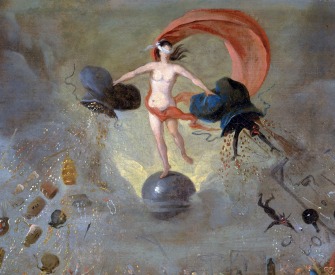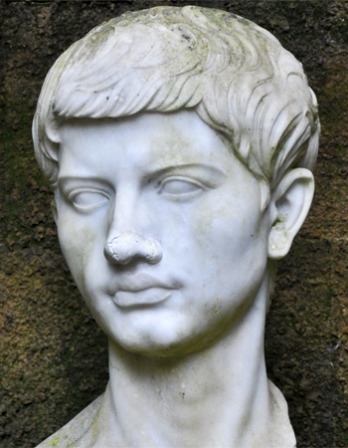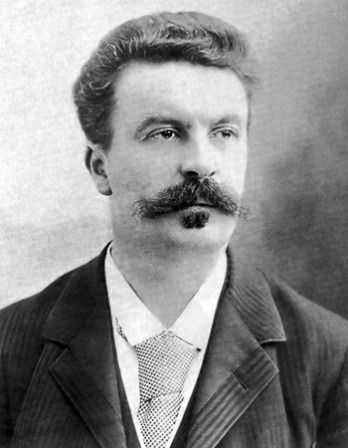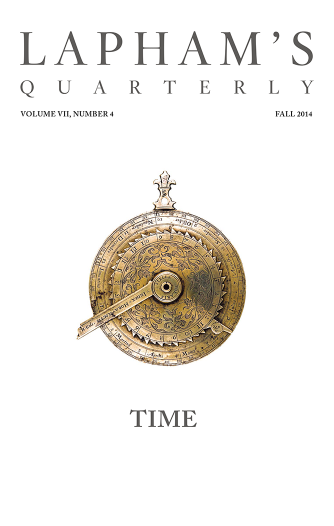See, through this air, this ocean, and this earth,
All matter quick, and bursting into birth.
Above, how high, progressive life may go!
Around, how wide! how deep extend below!
Vast chain of being! which from God began,
Natures ethereal, human, angel, man,
Beast, bird, fish, insect, what no man can see,
No glass can reach; from infinite to thee;
From thee to nothing—On superior powers
Were we to press, inferior might on ours;
Or in the full creation leave a void,
Where, one step broken, the great scale’s destroyed:
From nature’s chain, whatever link you strike,
Tenth, or ten thousandth, breaks the chain alike.
And, if each system in gradation roll,
Alike essential to the amazing whole;
The least confusion but in one, not all
That system only, but the whole must fall.
Let earth unbalanc’d from her orbit fly,
Planets and suns run lawless through the sky;
Let ruling angels from their spheres be hurl’d,
Being on being wreck’d, and world on world;
Heav’n’s whole foundations to their centre nod,
And nature tremble to the throne of God.
All this dread order break—For whom? For thee?
Vile worm!—O madness! pride! impiety!
What if the foot, ordain’d the dust to tread,
Or hand, to toil, aspir’d to be the head?
What if the head, the eye, or ear repin’d
To serve mere engines to the ruling mind?
Just as absurd, for any part to claim
To be another in this general frame:
Just as absurd, to mourn the tasks or pains,
The great directing mind of all ordains.
All are but parts of one stupendous whole,
Whose body nature is, and God the soul;
That, chang’d through all, and yet in all the same,
Great in the earth, as in the ethereal frame;
Warms in the sun, refreshes in the breeze,
Glows in the stars, and blossoms in the trees;
Lives through all life, extends through all extent,
Spreads undivided, operates unspent,
Breathes in our soul, informs our mortal part,
As full, as perfect, in a hair as heart;
As full, as perfect, in vile man that mourns,
As the rapt seraph that adores and burns;
To him no high, no low, no great, no small;
He fills, he bounds, connects, and equals all.
Cease, then, nor order Imperfection name:
Our proper bliss depends on what we blame.
Know thy own point: This kind, this due degree
Of blindness, weakness, Heaven bestows on thee.
Submit—In this, or any other sphere,
Secure to be as blest as thou canst bear;
Safe in the hand of one disposing power,
Or in the natal, or the mortal hour.
All nature is but art, unknown to thee;
All chance, direction, which thou canst not see;
All discord, harmony not understood;
All partial evil, universal good:
And, spite of pride in erring reason’s spite,
One truth is clear, “whatever is, is right.”
From Essay on Man. After publishing translations of both the Iliad and the Odyssey, Pope in 1726 credited Homer with the £10,000 payment he received which allowed him to “live and thrive / Indebted to no Prince or Peer alive.” He intended the Essay as an introduction to his masterwork on man’s place in the cosmos, which he never wrote.
Back to Issue





